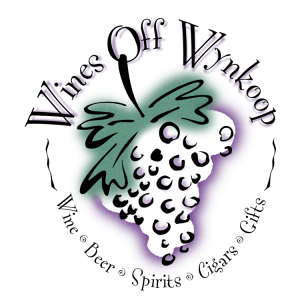Organic labels are everywhere: from the fruits and vegetables we eat, to the snacks we buy in bulk. The organic food trend skyrocketed in the early 2000s, as shoppers began to see the connection between diet, health and the environment. Today, people reach for these “clean” labels and demand transparency in the products they consume—food or otherwise.
Most people aren’t aware that the same types of concerns regarding the processed food industry (like the use of GMOs, added sugar and preservatives) also apply to the wine industry—but they’re catching on. “We’re seeing more than 20-percent organic growth yearly with organic wines.” says Jeremy Shapely, an importer with Triton Wines. “Millennials and Baby Boomers are the driving force.”
So what exactly is organic wine, and why should we be choosing it over regular wine? Keep reading to learn more about how it’s made, why it’s gaining popularity, and what our favorite bottles are here at Wines Off Wynkoop.

What is organic wine, and how exactly is it made and produced?
Organic wine is made from grapes that have been grown without the use of artificial or synthetic chemicals, like herbicides and pesticides. To keep the weeds and bugs at bay, organic farmers work with nature rather than against it—like introducing cover crops to provide a habitat for beneficial insects that are the natural enemy of problem species, or have small sheep graze between the vine rows to eat the grass and weeds. This way, the vineyard becomes a self-regulating natural ecosystem, eliminating the need for artificial and toxic chemicals.
What makes organic wine healthier than non-organic?
The grapes used in organic wines produce heartier skins and higher concentrations of antioxidants (including polyphenols and heart-friendly resveratrol). Also, organic wines are free of pesticides and herbicides, contain less sugar, and leave out potentially harmful cellar additives such as flavoring agents or coloring. You are what you eat (and drink)—so in short, yes, organic is healthier for you than a non-organic wine.
Moreover, organic wines are kinder to the environment—specifically, organic vines tend to need less water, because soils are built-up with compost and contain more organic matter, which holds water far better. By using less water and not contaminating the existing water supply with harmful chemicals, the vineyard workers are doing their part to leave the earth healthier than when they found it.
Where can we get organic wines, and what do you recommend?
You can find numerous organic wines right here at Wines Off Wynkoop! “One of my favorites is Garo Vin’s Anjou Rouge, a Cab Franc from the Loire Valley in France. This is a super complex wine with a ton of earthy notes—it’s a little peppery, but still has some nice red fruit as well. This one pairs really well with meats like lamb and beef.” says Jodi, one of our team members.
We also enjoy this Marguet Shaman 14, an organic Grand Cru Champagne with notes of fruitcake, brioche, and wonderful minerality, as well as this Les Hauts de Lagarde Blanc (White) Bordeaux that is ripe and juicy, with aromas and flavors of apricot, pear, honeydew, and lemon-lime acidity, on a minerally backbone.
Do you have any more questions about organic wine? Swing by the store, and we’d be happy to help you pick out the perfect bottle!

Information sources:
Draxe
The Guardian
FoodDive.com
OrganicAuthority.com
